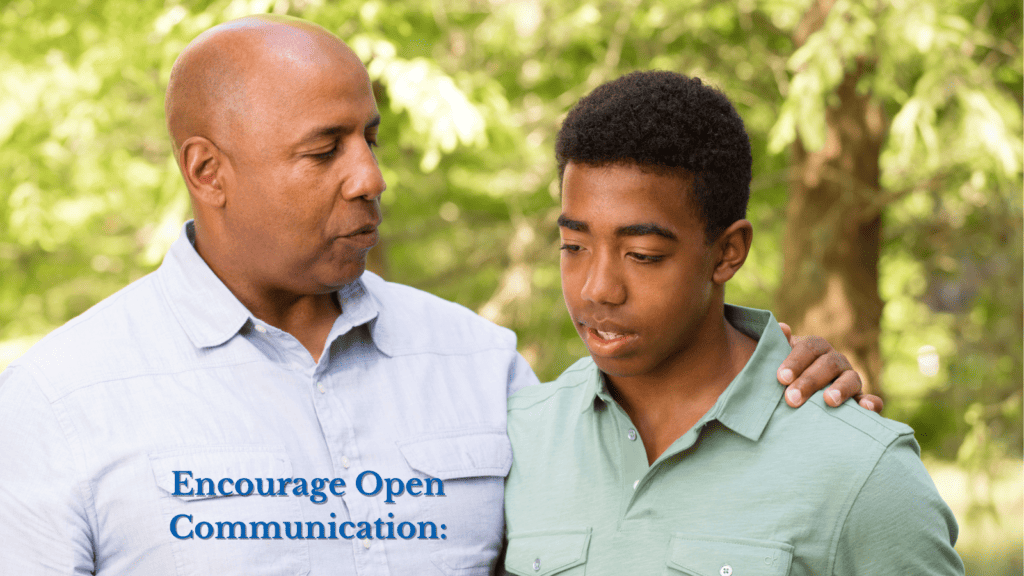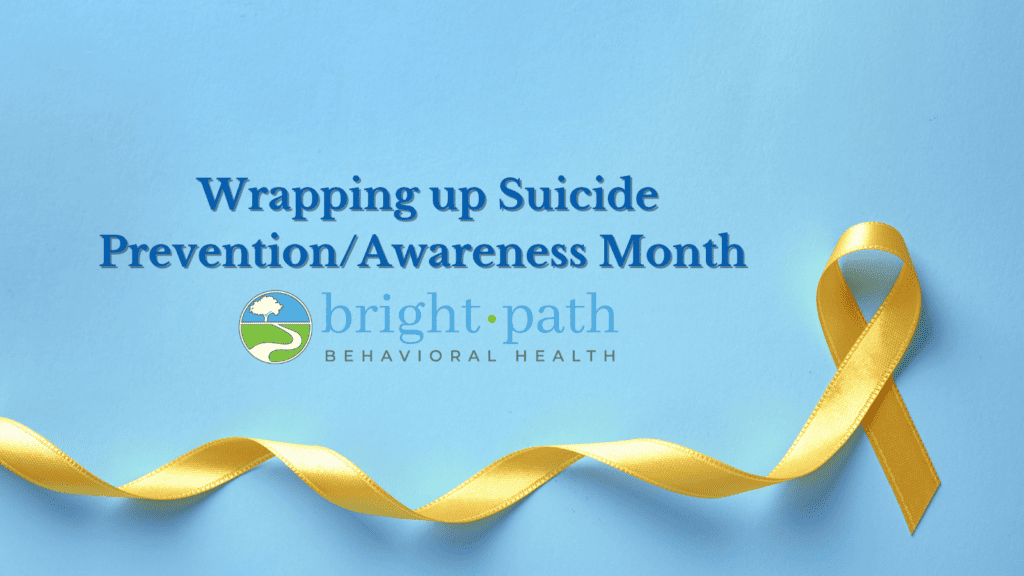Teen suicide is a critical and pressing issue that affects families and communities worldwide. With increasing awareness of the complexities surrounding adolescent mental health, it’s essential to equip ourselves with effective strategies for suicide prevention. In this article, “10 Teen Suicide Prevention Strategies,” we delve into a range of approaches designed to safeguard our youth from this tragic outcome. From fostering open communication to understanding the warning signs, each strategy is a step toward creating a safer and more supportive environment for teens. As we explore these methods, our goal is to empower parents, educators, and community members with actionable steps to intervene and provide support. This journey of prevention is not just about averting a crisis; it’s about nurturing the well-being and resilience of our young people, ensuring they have the resources and support needed to navigate life’s challenges. Let’s embark on this vital exploration together, with the hope and commitment to make a significant difference in the lives of teenagers.
What is Teen Suicidal Ideation?
Teen suicidal ideation refers to when a teenager has thoughts about, considers, or plans suicide. It can range from fleeting thoughts to detailed planning. Understanding these thoughts is crucial in suicide prevention, as they can be a significant warning sign of a deeper mental health issue.
What Are Strategies To Prevent Teen Suicide?
The 10 strategies to prevent teen suicide according to Doctor Shantel Sullivan are listed below:

1. Encourage Open Communication:
Create a safe, non-judgmental space for parents and their teenager to talk about their feelings, fears, and concerns.
Listen actively and without interruption to both the parents and the teenager. Acknowledge their emotions and validate their experiences.
2. Promote Professional Help:
Emphasize the importance of seeking professional assistance. Encourage parents to reach out to mental health professionals, such as therapists, counselors, or psychiatrists, who specialize in adolescent mental health.
Help parents locate local crisis hotlines or mental health services that can provide immediate support.
3. Safety Assessment:
If there’s an immediate threat to the teenager’s safety, ensure parents understand the importance of contacting emergency services or going to the nearest hospital.
Encourage parents to remove any potential means of self-harm or suicide, such as medications or weapons, from the teenager’s access.
4. Educate Parents About Warning Signs:
Provide information on common warning signs of suicidal ideation or behavior in teenagers, such as changes in mood, behavior, or sleep patterns.
Help parents understand that talking about suicide does not increase the likelihood of it happening and that open dialogue is crucial for intervention.

5. Support Self-Care for Parents:
Remind parents to prioritize their own well-being and seek support for themselves. Caring for a suicidal teenager can be emotionally draining, and parents need their own support network.
Suggest that parents consider joining support groups or seeking therapy themselves to cope with their own emotions.
6. Encourage Involvement of Trusted Adults:
Encourage parents to involve other trusted adults in the teenager’s life, such as relatives, teachers, or close friends, to provide emotional support and monitoring.
These individuals can also help create a supportive network around the teenager.
7. Safety Plan Development:
Assist parents and their teenagers in creating a safety plan. This plan should include coping strategies, people to contact during crises, and emergency numbers.
Ensure that the safety plan is easily accessible and known to all involved parties.
8. Monitor and Follow Up:
Stress the importance of ongoing monitoring and follow-up. Suicidal ideation can be recurrent, so it’s essential to stay vigilant even after the crisis has passed.
Encourage parents to keep lines of communication open with mental health professionals for ongoing support.
9. Normalize Seeking Help:
Help parents understand that seeking help is a sign of strength, not weakness. Reducing the stigma around mental health issues can make it easier for both parents and teenagers to seek assistance.
10. Be a Source of Emotional Support:
Offer your own support to parents during this difficult time. Share resources, provide information, and check in on their well-being.
In any situation involving suicidal ideation or behavior, the top priority is the safety and well-being of the teenager. It is crucial to involve mental health professionals who can provide appropriate assessment and treatment. Encourage parents to work closely with these professionals and follow their guidance.

How is Teen Self-Harm Related to Teen Suicide?
Teen self-harm is closely related to teen suicide as it often signifies underlying emotional distress, mental health issues, or psychological pain. While not every teen who engages in self-harm has suicidal intentions, the behavior can escalate to suicidal thoughts or actions if left unaddressed. Self-harm can be a coping mechanism for intense emotions or a way to express feelings that seem too difficult to put into words. However, it also increases the risk of accidental or intentional life-threatening injuries. Recognizing and treating self-harm behaviors in teens is crucial as it provides an opportunity to intervene and offer support before these behaviors potentially lead to suicidal ideation or attempts.

When is Suicide Awareness Month?
Suicide Awareness Month is observed in September. It’s a time dedicated to raising awareness about suicide prevention, sharing resources, and fostering conversations about mental health and suicide. During this month, various organizations and communities engage in activities and campaigns to educate the public, remember those lost to suicide, and support those who have been affected by suicide. The month also includes World Suicide Prevention Day on September 10th, which is a specific day aimed at promoting worldwide commitment and action to prevent suicides.
What Are Effective Strategies for Preventing Teen Suicide?
Effective strategies for preventing teen suicide include promoting strong, supportive relationships with adults, ensuring access to mental health care, educating teens and their communities about the signs of suicide risk, and implementing school-based programs that teach coping and problem-solving skills.
Can Social Media Influence Teen Suicidal Behavior?
Social media can influence teen suicidal behavior both positively and negatively. While it can provide support and a sense of belonging, it can also lead to cyberbullying, social isolation, and exposure to harmful content. Monitoring and guiding social media use is crucial in prevention efforts.
What Role Do Schools Play in Teen Suicide Prevention?
Schools play a critical role in teen suicide prevention by providing an environment that promotes mental well-being, offering education on mental health, identifying at-risk students, and facilitating access to counseling and support services.
How Can Parents Recognize Signs of Suicidal Ideation in Teens?
Parents can recognize signs of suicidal ideation in teens by staying alert to changes in behavior, mood, and habits, such as withdrawal from activities, changes in sleep patterns, expressions of hopelessness, and direct or indirect talk about death or suicide.
What Support is Available for Teens Struggling with Suicidal Thoughts?
For teens struggling with suicidal thoughts, support is available in various forms, including professional mental health services, crisis hotlines, support groups, and community resources specifically geared towards adolescents.
How Can Peers Support a Teen Experiencing Suicidal Thoughts?
Peers can support a teen experiencing suicidal thoughts by listening without judgment, expressing concern and care, encouraging them to seek professional help, and alerting a trusted adult if there’s immediate risk or danger.
What Impact Does Bullying Have on Teen Suicidal Ideation?
Bullying can have a significant impact on teen suicidal ideation, as it can lead to feelings of isolation, depression, and low self-esteem. Addressing and preventing bullying is a key aspect of suicide prevention strategies.
How Do Cultural and Societal Factors Influence Teen Suicide?
Cultural and societal factors influence teen suicide by shaping attitudes towards mental health, accessibility of resources, and the stigma associated with seeking help. Understanding these factors is essential in developing inclusive and effective suicide prevention strategies.
How Does Suicide Awareness Month Contribute to Preventing Teen Suicide?
Suicide Awareness Month plays a pivotal role in teen suicide prevention by increasing public knowledge and understanding about suicidal ideation and mental health issues in teens. It encourages open conversations, promotes educational programs, and highlights resources for support and intervention.
What Are Effective Strategies for Preventing Teen Suicide and Self-Harm?
Effective strategies for preventing teen suicide and self-harm include promoting strong, supportive relationships with adults, ensuring access to mental health care, educating teens and their communities about the signs of suicide risk, and implementing school-based programs that teach coping and problem-solving skills.
Can Social Media Influence Teen Suicidal Behavior?
Social media can influence teen suicidal behavior both positively and negatively. While it can provide support and a sense of belonging, it can also lead to cyberbullying, social isolation, and exposure to harmful content. Monitoring and guiding social media use is crucial in prevention efforts.
What Role Do Schools Play in Teen Suicide Prevention?
Schools play a critical role in teen suicide prevention by providing an environment that promotes mental well-being, offering education on mental health, identifying at-risk students, and facilitating access to counseling and support services.
How Can Parents Recognize Signs of Suicidal Ideation in Teens?
Parents can recognize signs of suicidal ideation in teens by staying alert to changes in behavior, mood, and habits, such as withdrawal from activities, changes in sleep patterns, expressions of hopelessness, and direct or indirect talk about death or suicide.
What Support is Available for Teens Struggling with Suicidal Thoughts?
For teens struggling with suicidal thoughts, support is available in various forms, including professional mental health services, crisis hotlines, support groups, and community resources specifically geared towards adolescents.
How Can Peers Support a Teen Experiencing Suicidal Thoughts?
Peers can support a teen experiencing suicidal thoughts by listening without judgment, expressing concern and care, encouraging them to seek professional help, and alerting a trusted adult if there’s immediate risk or danger.
What Impact Does Bullying Have on Teen Suicidal Ideation?
Bullying can have a significant impact on teen suicidal ideation, as it can lead to feelings of isolation, depression, and low self-esteem. Addressing and preventing bullying is a key aspect of suicide prevention strategies.
How Do Cultural and Societal Factors Influence Teen Suicide?
Cultural and societal factors influence teen suicide by shaping attitudes towards mental health, accessibility of resources, and the stigma associated with seeking help. Understanding these factors is essential in developing inclusive and effective suicide prevention strategies.
United for Brighter Paths Ahead
In the pivotal journey of supporting teens through mental health struggles, every step, conversation, and intervention counts. BrightPath is here to guide, assist, and stand with parents and teenagers through every emotional ebb and flow, embracing them with expert advice, empathetic support, and a promise of steadfast accompaniment through challenging times.
Extend your hand to become a vital part of a community that uplifts, supports, and empowers. Share the resources, engage in conversations, and let’s collectively weave a future where every teen and parent feels heard, understood, and supported. The Bright Path Suicide Prevention Program In North Carolina helps teens who are dealing with suicidal thoughts gain the appropriate support and coping mechanisms to overcome their struggles. Let’s walk this path together – for every parent, every teen, and brighter, hopeful futures for all.

Share This Post





